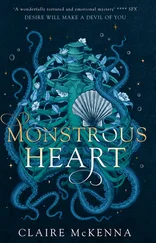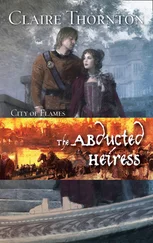Box springs sounded as Enrico’s mother got up and staggered to the windows on wobbly legs. Her fingers touched glass and traced a drop of rain.
“Do you see?” she whispered.
Was it a hallucination? Or was it rainfall? Drinking water might only grant borrowed time, but it would be spent with family—no fairy tale or telenovela , but real. Her most simple prayer had been answered with a miracle.
Ocate Mesa, New Mexico January 8 T-minus 24 days to launch
NED NEEDED TO sleep after clearing the southern end of the Colorado Rockies on their fourth refueling stop. They flew over a mountainous forest and landed on a high grassy hill with a clear view in all directions. They had to land in remote positions that could be easily defendable if pursuers ever caught up to them.
“I wish the Jayhawk wasn’t so damned loud,” Ned said to Gustavo, once the helicopter’s black blades wound down.
The sound attracted attention. Roving gangs of armed militias shot at them from the ground. Survivors crept from their hiding places and ran screaming and waving for help. Ned said he couldn’t wash the thought of all those desperate people from his brain. And what’s more, they made landing very dangerous; a quick-moving horde could be the end.
Ned ducked into the strap of his semiautomatic rifle and let it hang from his neck as he high-stepped around the Jayhawk and pinwheeled his arms, stretching cramped muscles. Gustavo had spent enough hours in the body of the helicopter, lying next to the extra fuel and supplies, that he was rested and not nearly so stiff.
He took out his laminated map of the Americas and located French Guiana. Ned had said that the Kourou airport, their final destination, was midway on its northern coast. Gustavo would have to trek south to reach the Oyapock River on the border of French Guiana and the Brazilian state of Amapá. Ned had a compass in his duffel bag. He wouldn’t need it once they landed in Kourou and he joined up with this Effort he kept talking about. A compass could guide Gustavo when the sky was clouded or hidden by thick canopy.
Once Gustavo reached the Oyapock River, he would follow it southwest to where it met the Camopi River. There were settlements of Other Wayãpi where the two rivers joined. Gustavo had visited these settlements many years ago. The language of these northern tribes, split from his own Wayãpi back in the age of the Grandfather People, sounded different from his own but not enough that he couldn’t understand it. Gustavo could talk to the Other Wayãpi of the Oyapock River. They might offer him shelter and even help him return to his own Wayãpi villages in Brazil by the Amapari River.
Gustavo stepped into the belly of the helicopter to check his rations. Water wouldn’t be much of a problem in a rainforest, but food would. He hoped there would be more rations to spare at the Fort Hood military base in Texas. When Gustavo hopped out onto the ground, Ned said they must be somewhere in northern New Mexico, but that didn’t mean anything to him. Outside of New York City, the North American landscape was all unknown to Gustavo. He turned in a circle and shivered in his poncho. He was used to hot, wet, green forests at the equator, but this forest was cold, dry, and golden. Long, pale grasses didn’t bend but crunched underfoot.
“How much longer until Fort Hood?” Gustavo asked again.
“Jesus, you’re like a kid on a car trip,” Ned griped. “Like I told you, little more than five hours of flight time with two more refuels.”
“What if it isn’t there—”
“I dunno,” Ned said quickly. “Pray? Probably die. We’ll deal with it when we get there. Now make yourself useful and set up the sleeping bags. I need to go take an elephant dump.”
Ned was usually cranky from hours of flying, but it didn’t take long for his better nature to resume on the ground. Gustavo carried their sleeping bags from the helicopter to a bare patch of earth and unrolled them just as he heard Ned wail. Gustavo sprinted to the other side of the hill and found Ned standing by the fly-covered remains of two people. Their clothes and meat had been stripped, leaving desiccated, sinewy skeletons with stained underwear. Gustavo tried to measure how long the dry decay had been left in the sun. He could still see lots of telltale footprints and broken turf from a struggle.
“We can’t bed down here,” Ned said. “Jesus. They look like a man and woman. Were they married?”
Gustavo turned away from the gore and told Ned he needed to sleep.
“I hate this place now,” Ned announced.
“Don’t waste your hate on places. Save it for people.”
“Is that from one of your poems?” Ned asked, sarcastic.
Gustavo ignored him and kept walking.
“What’re your famous poems about, anyway?” Ned asked as they headed back to the Jayhawk. “Dreams? Beauty?”
“War.”
Ned snorted.
“Well, that figures. Which war?”
“Mine,” Gustavo said.
He climbed into his sleeping bag for warmth and sat up alert. Ned stretched another minute before lying down. The rifle swung from his thick neck. Gustavo asked to hold the gun so he could keep watch while the other man slept. They were never safe unless they were in the air. Gustavo didn’t see any dangers within several miles of where they landed, but then he hadn’t seen those bodies, either.
Ned said nothing as he pulled the brim of his cap down over his eyes and shut them, twitching restlessly. An awkward silence passed, broken only by Ned’s muffled farts.
“I saw you had a Bible in your bag,” Ned finally said.
“You looked through my bags?”
“Once,” he replied, shameless. “When you set off to empty the piss jars at the last refuel. You know, I was raised on those parables. Back in Oregon.”
Gustavo had also been raised on those stories, as well as those of the Grandfather People. All peoples seemed to have their own myths of how they came to be and how they could continue.
“What about the end?” Ned asked. “I don’t remember what the Bible said about the end, but I know it’s in there. Was it like this? ’Cause—and I’m just thinkin’ out loud here, but I think we’ve gone off script. I think we’re taking a page from the Donner Party.”
“The what?”
“I’m saying that if we end up as nothing but Godless cannibals… I don’t think I wanna be part of that future. No, sir, I’m not going down like that.”
In some ways, Gustavo felt sorry for his companion. In others ways, he found him spoiled. The end was not a new threat for Gustavo’s people or any of the peoples subsisting on what was left of the natural world. The end was not new to all the animal species on the brink of extinction.
“Ever wonder if it’s your turn?” Gustavo asked, unable to contain his envy.
“What?”
“Your civilization,” Gustavo clarified. “What if it’s your turn to die out and fade from history? What if that comet is your Christopher Columbus? Your Portuguese and Spanish conquistadores?”
“What’d you mean, your ? We’re in this together, Gustavo. Just because you’re not white—”
But it wasn’t race that formed a boundary. Ned didn’t understand, and Gustavo didn’t have the words to explain it.
“I’ll need your compass,” Gustavo blurted.
Ned snorted again. He gave a litany of grievances that Gustavo did his best to tune out. He hated relying on strangers. He hated that he needed this pilot, his helicopter, and his compass—and the rest of his food rations, hopefully, once they landed in Kourou.
“I know you’re just using me to hitch a ride,” Ned grumbled, “but would it kill you to crack a smile?”
Читать дальше












